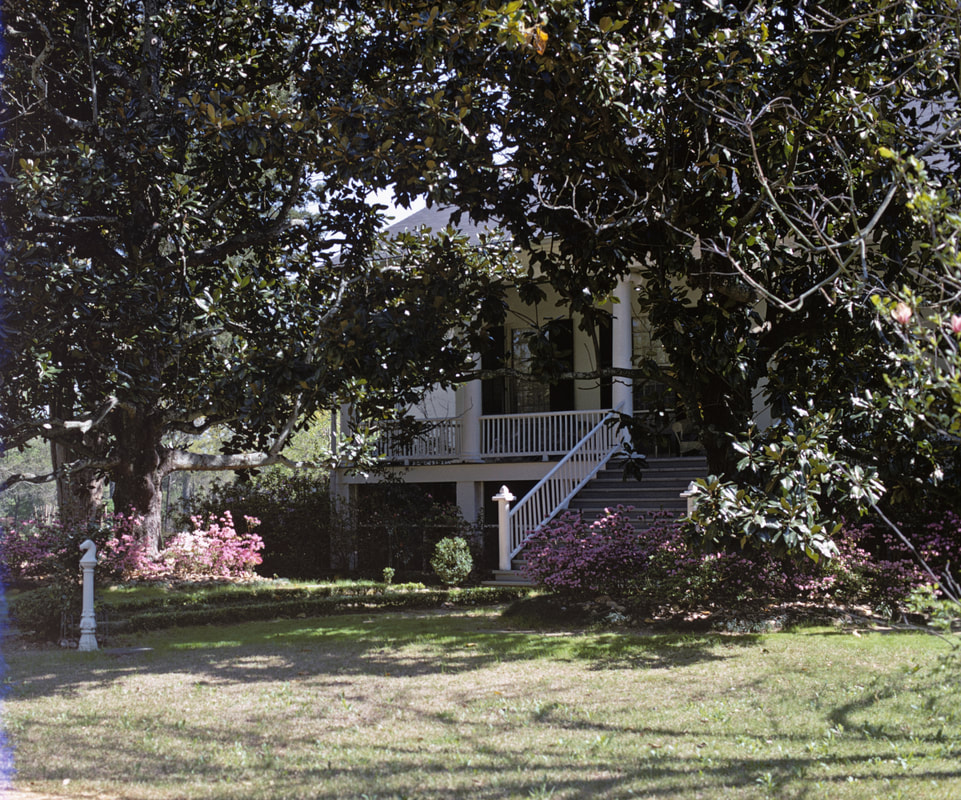
| The short version, based on known facts: Miss Eloise had no head for money. Back in those days ladies didn’t concern themselves with such. Her late husband had confided to my mother, “Annie Lee, Eloise has inherited 3 large fortunes and she’ll go through all of them before she dies.” And she did. Rightt: Miss Eloise much earlier than when I knew her. |
| At some point in the late 1940s I accompanied my mother to Umbria one morning. It was likely to deliver a telephone message that had arrived for her at the post office telephone, the only one for some 5 miles in any direction. Up the front steps into the living room, then to the left through the large dining room, through the kitchen with some 10 or more servants gathered there, into Miss Eloise’s bedroom where she still lay abed, although sitting up with a silk robe around her |
Miss Eloise’s father, James Pickens, had inherited the estate from his brother, Sam Pickens, who had died in 1891. Sam had inherited the estate from his father, Samuel Pickens, brother to early Alabama governor Israel Pickens. It was Samuel who had begun constructing the large Umbria plantation house in the early 1830s. Sam the Younger never married, although there is evidence that he was corresponding with a lady of station in South Carolina. In the middle 1880s Sam was involved with a Black woman who had been born enslaved by the Pickens family and after Emancipation had taken a position as head housekeeper for Sam. They had a child, Johnnie Pickens. The same Johnnie Pickens who ran Rock-olla, restaurant, meat market, barbershop, and icehouse directly across the highway from my home in Downtown Sawyerville. He died in 1950, and I recall knowing him when I was a child.
Since Sam died without (White) issue, the estate passed to his brother James. Upon the death of James in passed to Miss Eloise and her 2 sisters. The sisters were married and lived elsewhere, and Miss Eloise and Mr. Will lived at Umbria, where they were often visited by his mother and her 2 sisters.
| I am convinced that she knew that Johnnie Pickens was her first cousin. I believe that she treasured his children by his first and second wives as family. Johnnie and his second wife Prizelia lived in a house directly across the railroad tracks behind the juke joint and icehouse, approximately 2 short city blocks from my home. I knew that family well, especially their oldest son, Eugene, and youngest daughter, Vickie, who had been born just a year before Johnnie’s death. Both recall being invited over to Umbria to spend the night, often sleeping in the bed with Mss. Eloise. They both recall her fondly. The property owned by Johnnie in Downtown Sawyerville had once been a part of the larger Umbria Plantation, which had been a good half mile wide and several miles long in the north/south direction. I believe that Johnnie’s property came to him either by Pickens gift of or sale at a small price. |
Miss Eloise and Mr. Will had had 2 children, the girl dying in 1918 and the boy in 1920, both under 2 years of age. The influenza epidemic or just the problems of rearing a healthy child at the time? I can’t answer that. I do know that Mr. J.R. and Cousin Susie Martin also lost 3 newborns during that same period.
I believe that losing her only children at such an early age had encouraged Miss Eloise to seek substitutes, including not only the children of her Black first cousin but also my parents, younger than she and her husband. I further believe that this caring may have also extended to the descendants of other Black people who had been enslaved by her family. I think of those 15 servants it took to poach an egg and toast a piece of bread. Could they have been hired not so much as servants but because Miss Eloise was trying to provide good incomes for the people themselves at a time of great poverty in the South, particularly among Blacks? I don’t know the answer. But I like to speculate. In the novel I write in my mind that is certainly the case.
Here’s a tale my mother told me. First the facts, as she knew them.
Miss Eloise and Mr. Will had a house on Perdido Bay, on the side nearest the Gulf. In those days to get to it you went to a store and boathouse on the north side of the bay and the owner would ferry you across. I recall making that trip once, in the late 1940s.
| One summer they took a young Black boy down with them presumably to be of service. The boy liked to swim in the bay, and one day while swimming alone he drowned. The Lunsfords felt so bad that this happened that they brought his body back to Sawyerville and buried him immediately outside the west fence around the White Pickens family graveyard. Rignt: Lunsford marker in Pickens cemetery. |
Now to move ever further from oral history and childhood recollection into speculation.
If Chavers, might the boy have been brother or other kin to the Jim Chavers who had worked for Miss Eloise as chauffeur? My memory from childhood is that the Chavers family were very much a part of Umbria.
Is this drowned Black child another yet another of Miss Eloise’s substitute children, like my parents and the Pickens children?
Is it possible that the Chavers family and this child were also kin to the White Pickens family? If so, might that lineage be traced back to the first Samuel Pickens who established the plantation and built the house? I do believe that sexual encounters between the enslaver and the enslaved were more common than not back then, and you do hear tales of White owners wishing to “improve the breed” through their own White genes. Apparently the Pickens family did keep detailed records of the family lineage of those enslaved by them, and according to The Alabama Black McGruders Umbria did rent Charles McGruder more than once for breeding purpose.
I do believe that Miss Elise felt a special closeness to this child. At that time in most cases a drowned Black boy would have been buried in a Black cemetery close to where the incident had occurred, not transported 200miles north to Hale County and buried adjacent to the White family. My mother’s interpretation was that the family felt a special affection for this child.
The South is filled with stories, and the South is filled with unsolved mysteries.
After she finished college in 1964 my sister taught for a few years in the Mobile County school system, for a while rooming with a cousin of Miss Eloise. Once they attended a reception where they encountered the Reverend Arsnault, who had been the Episcopal priest at St. Paul’s in Greensboro during the later life of Miss Eloise. My sister introduced herself and commented on their mutual knowledge of the late Eloise. He said to her something that has haunted me ever since I heard about it:
“What can you say about someone whose only sin was an excess of generosity?”
I think back to the itinerant knife sharpener during the Great Depression who while passing through Sawyerville turned up at the Umbria kitchen asking if they had knives needing sharpening, for food. Miss Eloise took him in, gave him a room in one of the outbuildings, and provided for him for the rest of his life. I recall him coming to the post office to check on mail for Umbria. Tall skinny man. He must have died toward in the middle 1940s.
I recall that she deeded the 3 acres of the Umbria property where I live today as a Christmas gift to my parents in 1943. My father had been urging Eloise to sell it to him for more than a decade, but it came as a gift. The accompanying note is still a family treasure in my safe deposit box.
Here is the text of that letter:
Dear Annie Lee and Bryan,
Our gift to you this Christmas will be the little plot of ground that your house and store stand on. I know of no two people whom we would rather have share our land with us. You have both been so sweet and good to us on all occasions.
Just as soon as we can get Mr. Bond [?] to survey it, we will turn the deed over to you.
We wish for you every joy of Christmas and may the New Year bring better things to you and to the world.
Your friend,
The Pickens Sisters
I recall that after Mr. Will’s death she brought 2 Pickens sisters, cousins living in genteel poverty in Birmingham, to the Umbria house to live with her. Yes, company, but I believe her motivation went beyond that. When she was forced to sell a decade later the first thing she did with the proceeds was purchase a house for Miss Louise and Miss Eliza across the highway from the Episcopal Church in Eutaw, and I strongly suspect this gift was accompanied by funds for their continued support.
Could her hiring of many more servants than were required for the upkeep of her property be explained by this same excess of generosity?
` I believe she was a true believer in the Christian faith and that she was a major donor to St. Paul’s. Was she also a true practitioner of the Christian faith?
Did she sell off all her belongs and give to the poor?
Was she a stupid old woman who let money slip through her fingers? Or was she a major benefactor, a kind and good woman helping others? I’ll never know.
Of course she may have been both. But if forced to choose, I will definitely take the latter.
And if that is the true version, might this post have been titled “Winning"?
Below: Ruins of Umbria house, 1999. The house burned in December 1971 after the he photograph at the top was taken in spring of that year. The ruined pillars have by now been removed.
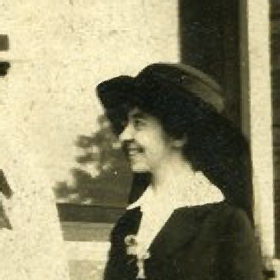
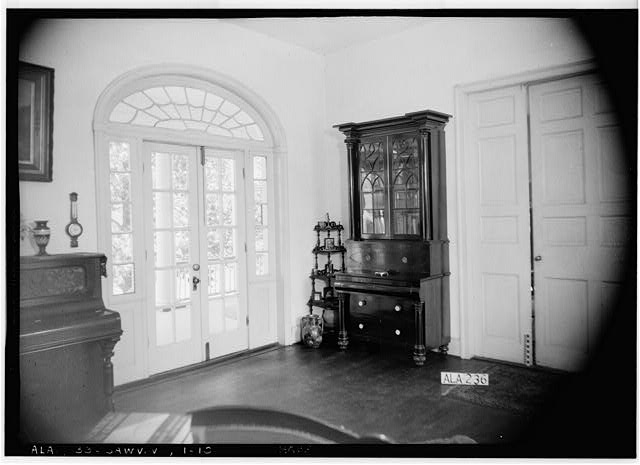
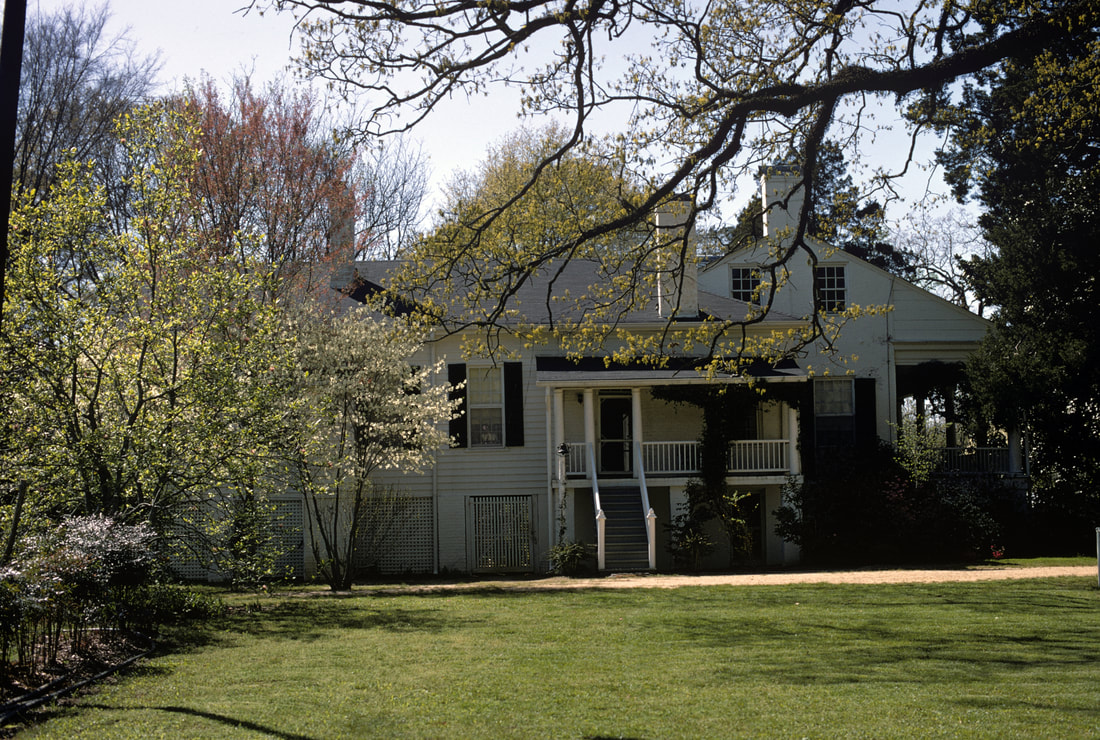
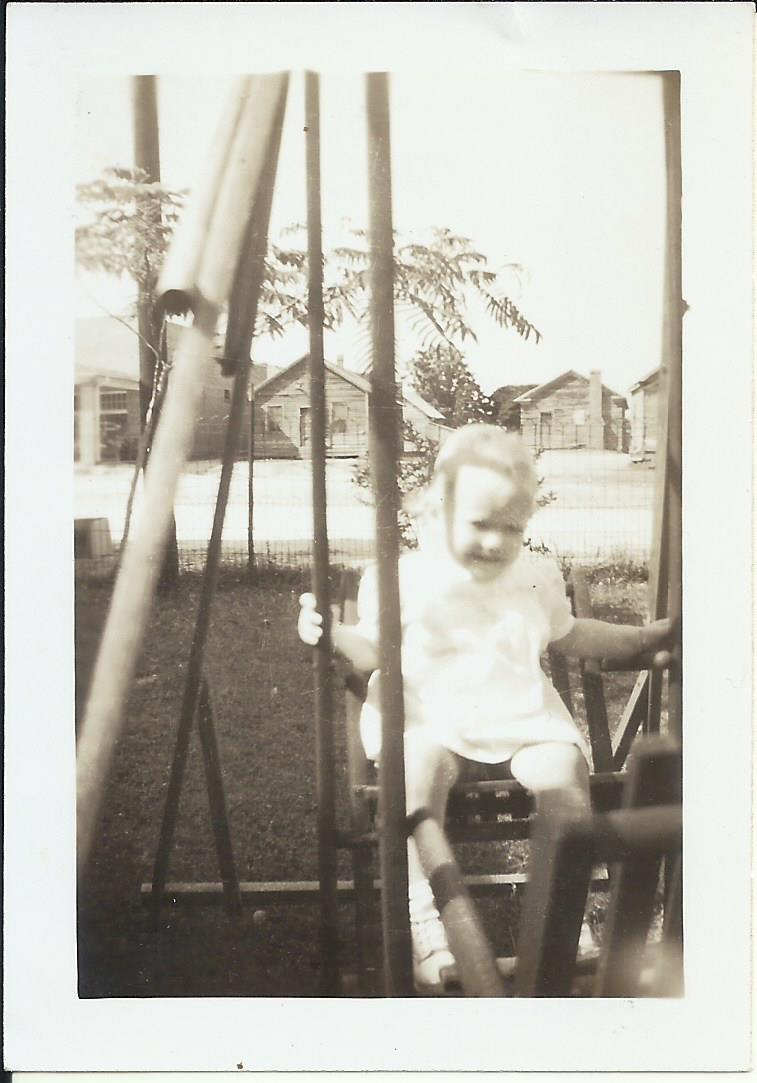
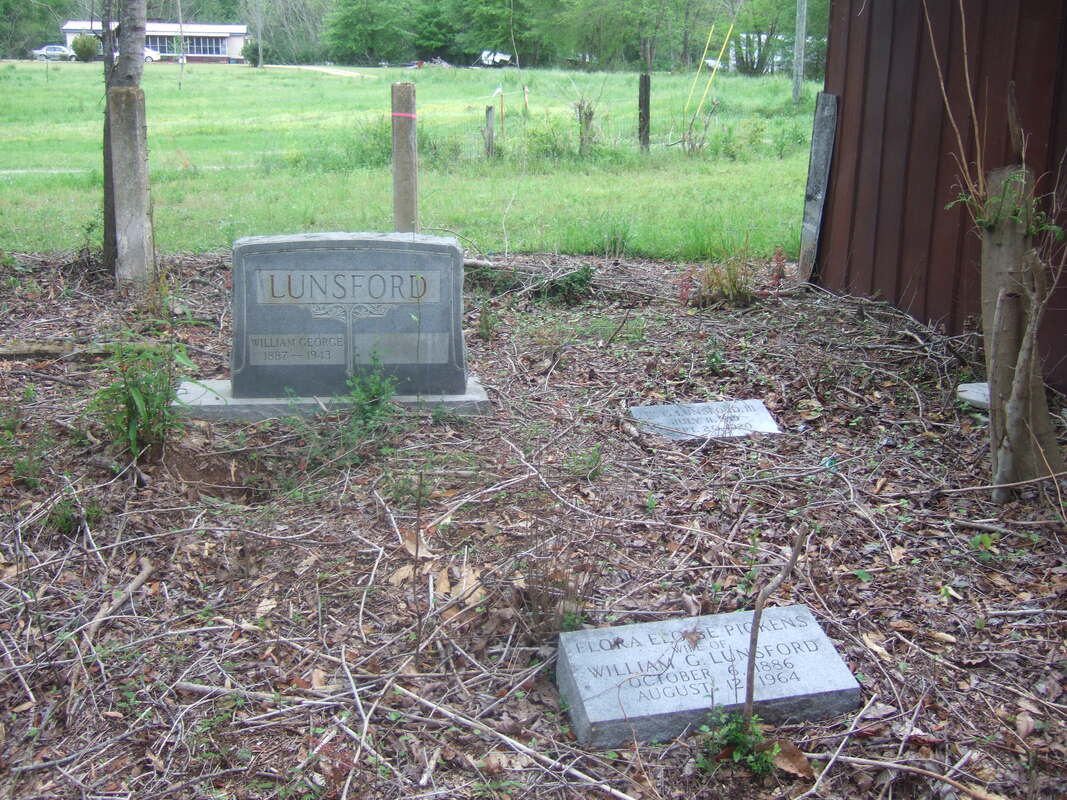
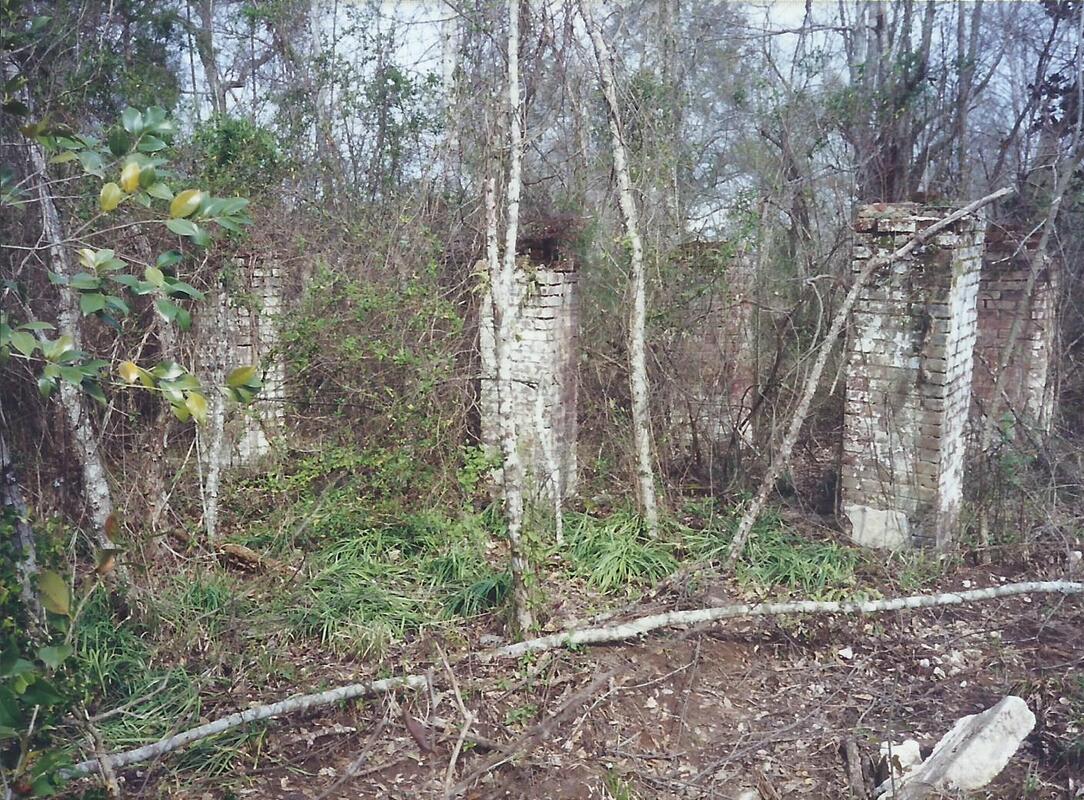
 RSS Feed
RSS Feed